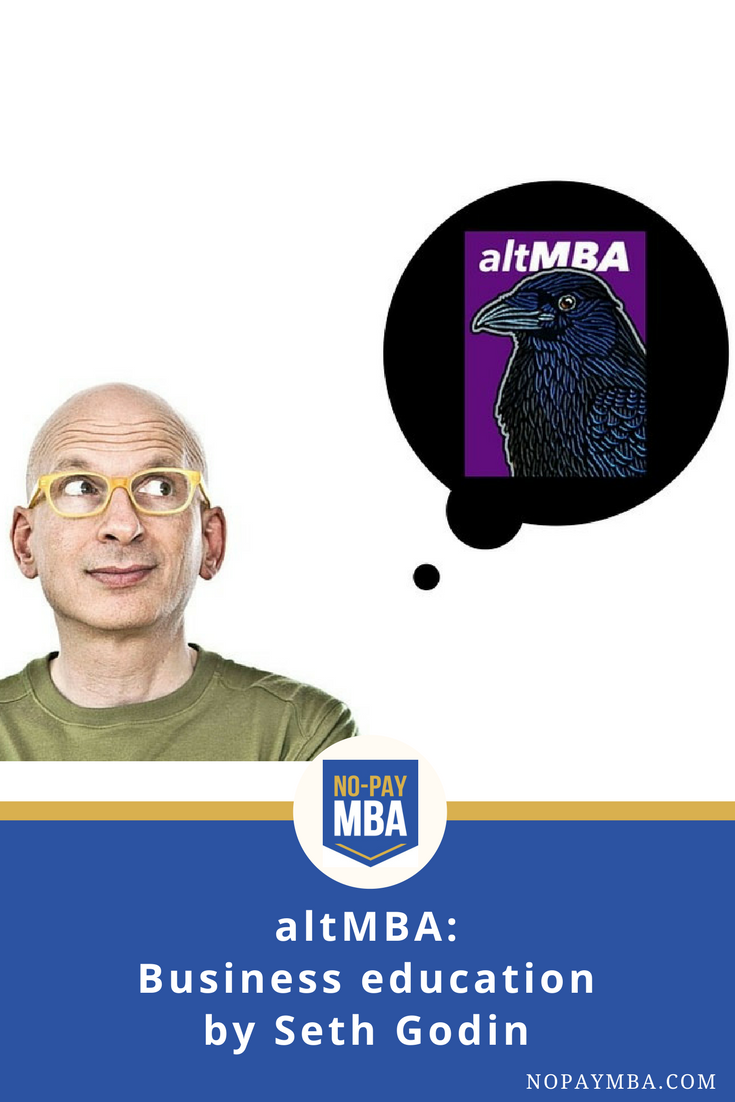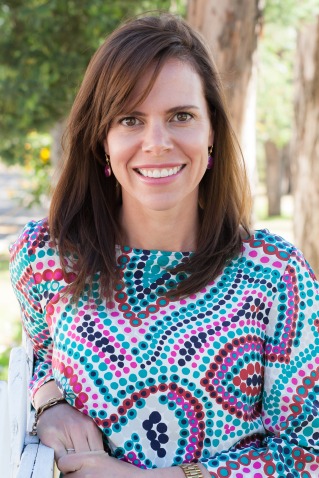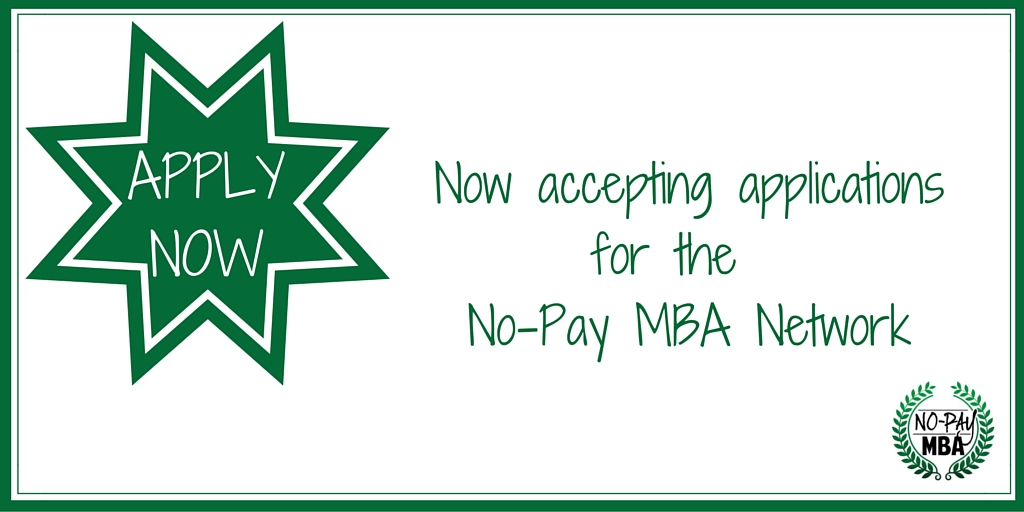by Laurie Pickard | Nov 6, 2015 | Most popular posts, Thoughts on Higher Ed and Life

I’ve written lots of blog articles about business education, and I’ve spent lots of time trying to find the right words to describe the process of educating oneself using MOOCs and other new tools.
I must say, I am downright frustrated with the limitations of the English language when it comes to talking about education.
What do I mean?
I’m talking about the fact that the three most common verbs used in conjunction with education are the three least descriptive, most boring verbs in English.
Go. Do. Get.
A student goes to a university.
She does an MBA.
She gets a degree.
These words completely hide the richness of the educational process. Not only that, these verbs are awkward when it comes to talking about an education that doesn’t result in a degree, or that isn’t administered by an institution.
Do, go, and get are bound up with the idea that education is a thing. You go to a place, do some tasks that are assigned to you, and you get a piece of paper that is commonly recognized to be a valuable signal of your preparation. That’s education in a nutshell, right?
Well, I’m here to challenge these verbs and the idea of education that is encapsulated within them. I would like to propose three new verbs (and some related synonyms) to talk about education not as a thing, but as a process in which the learner is an active participant, not a passive recipient.
EXPERIENCE. BUILD. ACHIEVE.
Education isn’t about GOING to a university; it’s about EXPERIENCING transformation.
The word GO fails to capture the richness of transformative education. You don’t just go, you BECOME someone you weren’t when you first showed up for your education. You ARRIVE at a destination, though not necessarily a physical one. GO misses the moments of inspiration and insight that occur, the relationships that form, the horizons that open up as a result of education. You don’t just GO to school, you LIVE through an educational experience. Education ACTIVATES you. You CHANGE, GROW, TRANSFORM, and EVOLVE.
GO is also inadequate given the fact that contemporary education doesn’t require you to go anywhere in particular. Going to Harvard sounds cool, but to my mind, EXPERIENCING Harvard sounds even cooler. And new technologies are making that possible. Watch this video to see what I mean.
Rather than DO a degree, why not BUILD a body of knowledge?
Of course, when you undertake an education, you are DOING something. But what are you doing exactly? In Spanish, ‘to do’ and ‘to make’ are the same verb. In the case of education, I think the word MAKE is a much better translation. Education is something that the learner CONSTRUCTS inside his or her head. Education has to be FORMED, DEVELOPED, CULTIVATED.
Knowledge is BUILT not received. Therefore, I’m not just DOING an MBA or its equivalent. I am CONSTRUCTING a set of skills and knowledge, DESIGNING projects to solidify my learning, CRAFTING the education that is most valuable and relevant to me.
Instead of GETTING an education, how about ACHIEVING education, understanding, or even mastery?
GET is the worst. GET makes it sound like your education is simply handed to you. Or as if education is something you can buy, like a product in a store. But as any serious student knows, education can’t just be exchanged in a monetary transaction. By the same token, real learning can most certainly take place in the absence of a transactional relationship. Who’s to say that Josh Kaufman’s book-based education is any less valid than a business degree that another person paid $150,000 for? Is it the transaction that makes it count? I don’t think so. GET makes it sound like a sale or deal is the only path to learning.
Instead of GETTING an education (or TAKING a course), wouldn’t it be better to ATTAIN, ACCOMPLISH, EARN, REACH, or ARRIVE at an education?
Which words do YOU use?
In my No-Pay MBA, I’m not just GOING online to take some courses and GET a few certificates. I’m not just DOING a replica of an MBA.
I’m actively BUILDING new skills and knowledge, EXPERIENCING a transformation in the way I think about business, and ACHIEVING mastery across a variety of business disciplines.
What about you? What verbs do you use to talk about your education?
by Laurie Pickard | Oct 26, 2015 | Courses, Platforms, and Profs

Question: What would business school look like if it were designed by marketing guru Seth Godin?
Answer: It would be immersive and intimate, accessible from anywhere in the world, and focused on shipping a ridiculous number of projects in a short time frame.
Seth’s latest venture, altMBA, is precisely that program.
A four-week sprint with peers from around the world
altMBA is a 4-week intensive business education that blurs the line between online and in-person. The curriculum centers around hands-on projects, created by Seth Godin, which participants complete in small groups. While the program is designed for maximum person-to-person engagement, participants are not physically together; the entire experience takes place in an online environment.
I recently got the chance to speak with Winnie J. Kao, who is the director of the program and a strong voice in the world of marketing in her own right. She explained to me that the short-term, intensive nature of the programs is one of its main benefits. “If you were doing it on your own, you might give up. But because you’re in this 4 week sprint, you’ve already paid the tuition, and your group is counting on you. It makes it hard to leave, so you stick it out. When you stick it out, you give yourself a shot to get through the dip. You trudge along doing the hard parts because your group will kindly call you out when you’re avoiding difficult decisions, and you make it through on the other side,” she said.
Winnie also explained that one of the most important things she has learned by running altMBA has to do with the power of technology to enable true, meaningful, and lasting connections to form. “When altMBA alumni meet up for the first time in person, after an intense month of working daily together online, it feels as if we’ve known each other for years. Alumni meet up all over the world for barbecues, dinners, and mastermind groups, and continue to support each other long after the sprint ends. We connect one another to relevant colleagues, root for each other, and celebrate when people get promotions, launch products, launch companies. It’s a beautiful thing.”
“If you were doing it on your own, you might give up. But because you’re in this 4 week sprint, you’ve already paid the tuition, and your group is counting on you. It makes it hard to leave, so you stick it out.”
-Winnie J. Kao
Why I’m blogging about the competition
So why would I spend a blog post to tell you about a program that could be seen as a competitor to No-Pay MBA? Here’s why:
I think you’ll be interested in altMBA
I see No-Pay MBA readers as being savvy and inquisitive, interested in a variety of unconventional approaches to business education. You’re high achievers, not status seekers, so you’re excited about transformative educational experiences whether or not they come with a degree from a brand-name institution. As Winnie J. Kao told me, “altMBA is for people who are hungry to do more and be better. It’s for people who see possibility and reasons to say yes. People who are ready to level up.” I would describe No-Pay MBA’s audience in the same terms.
When I choose topics to write about, I think back to myself pre-No-Pay MBA, when I was thinking about how I could get the transformative business education I sought without going tens of thousands of dollars into debt. Many No-Pay MBA readers are in a similar situation. My goal with this blog is to make you aware of your options and to help you make the best decisions about your business education. altMBA is a program I would have been interested in (in fact, I still am); by extension I assume that No-Pay MBA readers will want to know about it.
I don’t see altMBA as competition
I don’t really see altMBA as competition, for a few reasons. For one thing, it’s at a different price point than No-Pay MBA. Tuition for altMBA is $3,000 - much more affordable than traditional business school, but still significantly more expensive than joining No-Pay MBA’s network.
The curricula also differ significantly. No-Pay MBA is MOOC-based, while the course materials for altMBA’s curriculum were created by Seth Godin. Furthermore, altMBA is a sprint, whereas No-Pay MBA is a marathon. altMBA requires a serious number of hours over just a few weeks. A No-Pay MBA is a bit more fluid, designed to be completed in 18-24 months and adaptable to all kinds of schedules. There are pluses and minuses to both models, but they’re different enough to appeal to different people.
Now is the time for online learning with a human touch
Truth is, I feel validated by altMBA. Smart, famous people like Seth Godin and Winnie J. Kao agree with me that you can have a transformative educational experience in an online community. That’s cool! They also agree that making human connections and putting skills into practice are key to having such a transformative experience.
I’m also excited that Seth Godin thinks that now is the time to launch a business that brings together online learning, human connection, and hands-on practice. Winnie described to me a blue-skies process that she and Seth went through to develop Seth’s next venture. They could have done literally anything, and altMBA is what they chose.
We’re all in this together
“Can I run a program like this on my own?” asks altMBA’s FAQs section.
“You can and we hope you will. I hope you can find twenty talented people, earn their commitment and together go through a process like this one. I know it works, and the transformation is extraordinary. We’re building this because most people have a hard time organizing something like this and a harder time keeping it moving.”
As someone who is in the trenches building such a group, Seth’s words ring true. It is difficult to organize a group of people to form a true learning community in a virtual environment. But when you get it right, it’s extraordinary.
When I started the No-Pay MBA project, MOOCs were in their infancy, and the MBA was still singular in the world of business education. Since then, so many exciting opportunities have emerged, many of them intimate, innovative, and entrepreneurial. I’m happy to use my small megaphone to get the message out about the ones I find most exciting.
Where to learn more
For more information about altMBA, check out their website at altmba.com.
I highly recommend Seth Godin’s Startup School Podcast, an excellent primer to both building a startup business and to the inspirational force that is Seth Godin.
Winnie J. Kao writes an excellent blog about marketing, filled with insights about culture and human psychology.
by Laurie Pickard | Oct 12, 2015 | MOOC MBA Design, Most popular posts

This question has been on my mind for some time:
Should No-Pay MBA have a different name?
Here’s the thing: No-Pay MBA is not and has never been truly “no-pay.” When I started this project, my goal was to find out if it was possible to get a complete business education, equivalent to an MBA, using free online courses.
When the name “No-Pay MBA” occurred to me, it just felt right.
But I never expected my education not to cost anything at all.
Even at the very beginning, back when MOOC platforms weren’t charging for certificates, I knew there would be some expenses associated with my courses. Things like setting up a website (not free), buying books and other course materials (not expensive, but not free), and securing a high-speed internet connection in Central Africa (definitely not free!). Throughout my studies, I have paid for course content, career coaching, and many other non-free things, all of which have been vital to my education.
Given everything I’ve spent money on, No-Pay MBA has never been a 100% accurate name for the project I have undertaken. That was okay when this was just a blog site. However, when I launched a business in July of this year, the name “No-Pay MBA” started to seem like a potential source of confusion. Indeed, I’ve fielded more than one inquiry to the effect of, “If this is the No-Pay MBA, why do you charge?” (I answer that in the FAQs, by the way.)
Even a No-Pay MBA requires a budget
“No-Pay” is by no means an ideological stance on my part. Quite the opposite, to make an honest attempt at getting an MBA-level education, I think it is absolutely critical to have some sort of budget. I typically recommend $1000 US as a bare minimum. The audience I am seeking to reach is primarily made up of people who have seriously considered traditional MBA programs but have decided that the price is just too high. One-thousand dollars is a pittance compared to what many in that audience have contemplated spending on a business education, especially if they live in the US. It’s not “no-pay,” but when compared to the price of a traditional MBA it feels pretty close to it. For that amount of money you can get access to the course content you need, a few certificates to adorn your portfolio, and even be part of No-Pay MBA’s network of business students.
If you have more than $1000 to put towards your education, you can consider all kinds of enriching experiences - such as conferences, travel, in-person professional training, and coaching. But I understand that for many people, even $1000 is a serious sum, which is another reason I have begun to question whether “No-Pay MBA” makes sense as a name.
It’s all about return on investment
For me, it’s not about how much you spend; it’s about the return on investment. Before I started my No-Pay MBA, I had the feeling that an investment of $150,000 - $200,000 wouldn’t make sense for me. After taking a few finance courses, I was able to explain in precise terms why that was true. And it’s all about return. Given the work I am interested in doing, a business education that expensive wouldn’t provide a good enough return.
Business school - even the most expensive program - can be a great investment, IF you plan to get a job that a) requires an MBA, and b) pays well enough to offset the cost of the education. If one or both of those isn’t true for you, a traditional MBA may not be your answer. But a lower-cost business education might still be a great investment, even if it isn’t free. As someone who works in international development, that was certainly the case for me.
If you need a business education to advance in your career, I want to help you make the best decision on how to get that education. I want you to understand all the options that are out there, many of which have only come into existence in the past few years. None of the good options are totally free, though many of them are quite affordable. That kind of nuance isn’t captured in the name “No-Pay MBA.”
So I’m putting it out to my readers.
Should No-Pay MBA’s name be changed?
I would be sad to change our name. I have built a reputation and some brand equity with this name. Also, I just really like No-Pay MBA. It’s catchy, and it rhymes. Low-Pay MBA rhymes too, but it doesn’t have quite the same ring. Real Life MBA is already taken. $1000 MBA is too literal. High-Return, Low Cost MBA Equivalent is as well.
But I want to hear from YOU.
Do you think No-Pay MBA would be better served with a different name?
A name that makes it clear not to expect the education I’m promoting to be truly and totally free?
If so, what should that name be?
I want to hear your ideas.
You can share them here.
by Laurie Pickard | Oct 2, 2015 | Career Development

Anna Sparks
Earning an MBA-equivalent through self-study with MOOCs says a lot about you as a job candidate. It says that you are willing to do things creatively. It says that you aren’t confined by traditional ways. It shows that you can get things done even with limited finances. It shows that you are dedicated to finishing a project. These qualities are all incredibly important to most employers in the current market.
Your No-Pay MBA should absolutely be listed under Education on your resume, but don’t stop there! I want you to let this non-traditional experience shine, highlighting it in your cover letter or in a key qualifications section at the top of your resume.
Let’s explore some strategies for showcasing your No-Pay MBA - both on your resume and in your cover letter.
How to Include Your No Pay MBA on Your Resume
If you have not yet completed your coursework, check out these ideas for how to put a No-Pay MBA in-progress on your resume. Once you’ve completed your MOOC-based MBA, it absolutely belongs in your education section.
EDUCATION
Master’s in Business Administration (equivalent) 2015
Online Courses offered by University of Michigan, Wake Forest University, etc.
Let’s dissect this starting with the first line. It’s important to write “equivalent” because, like it or not, employers may ask for a copy of your degree and then you’ll be in a bit of a pickle. It’s also important to write what year you earned your degree (or finished your last class to complete the degree) so that it follows the same format as your other education and so that the employer understands how recently this happened.
If you have a hole in your resume, from taking time off from work for any reason, and during that time you completed all or part of your MOOC MBA, I suggest adding a date range (such as 2012 – 2015) to the end of each of your listings under education. This will show your employer that you weren’t sitting around unemployed, but you were working towards an advanced degree (or the equivalent).
The second line should list the universities where you took your classes. Try to list the universities where you took most of your classes. If it is a complete hodge-podge, name a few of the universities and then add “etc.” as I did in the example.
Don’t stop at the education section!
Because getting your MBA equivalent using MOOCs is still pretty innovative, it’s a good idea to present your MBA in another way instead of just writing it on your resume and letting your potential employer figure out what it means and if it’s important or not. Remember: it’s your job to tell them why it’s important. For those of you who are applying for jobs that require an MBA, this is going to be especially important. And, even if an MBA is not a requirement, you’ll want to take control of how the conversation goes. The best way to do that is to start the conversation yourself.
You’ve got two options here: 1) key qualifications section of your resume or 2) cover letter. Notice I said “or.” I wouldn’t mention your MBA in both spots because it would be overkill. Choose the option that works for you.

Make a good first impression in the key qualifications section
A key qualifications section is your best friend if you have done anything non-traditional in your career, including working in something wildly outside of your field, taking more than a year off of your career or, in your case, pursing a non-traditional education.
A key qualifications section is a short paragraph (three to four sentences) that provides an introduction to the resume. If you have one, it should be the first section on your resume (before professional experience). This section is important because it gives you a chance to control the first impression of you as a job candidate. Most employers will not read your resume bullet by bullet. By putting a short paragraph at the beginning of your resume, you give them something quick to read that nonetheless gives a full picture of who you are.
For someone who has completed a MOOC MBA, her key qualifications section may look something like this:
Graphic designer with ten years of experience supervising a team of twenty designers and working on logos and websites for clients such as Temple University, the Arizona State Congress, and political candidates. Independently earned a completely free MBA equivalent through strategically planning a curriculum based on Stanford University’s MBA coursework. Wide network of contacts in the greater Phoenix/Tempe region.
Exactly what you write in your key qualifications section will depend on your own qualifications AND (don’t forget this part) what your potential employer is looking for. In this example, I chose to highlight this candidate’s experience working in the state of Arizona. However, if the candidate has moved to California, she is wasting space by highlighting her network of contacts in Phoenix. In that case, she should look at the job announcement (or better yet, talk to her contacts that work at that employer) to see what skills she has that will be appealing to her potential employer. Then, those are the skills she should highlight in her key qualifications section in order to catch their eye.
Give a longer explanation in the cover letter
If you don’t love the idea of including your MBA in the key qualifications section of your resume, you can include it in your cover letter. This option gives you a few extra lines, which may be a plus for some people. A good cover letter should have a clear intro paragraph, three paragraphs describing accomplishments or skills that your potential employer will be interested in, and a closing.
If you choose to mention your No-Pay MBA in your cover letter, make sure to mention it in the introduction. Then dedicate one of the three body paragraphs to explaining it. The reason it is so important to mention it in the intro is because your potential employer may not read the whole cover letter, but they are pretty likely to read the first and last paragraphs. You want to make sure they get the main points of your cover letter even if they don’t read it all the way through.
An example always helps:
Dear XXX,
I am writing to apply for XXX position. I will be able to make a significant contribution to XX organization because XXX. My prior experience dealing with difficult donors, successful efforts raising over one million dollars in my position with the Red Cross, and my creative problem solving skills as evidenced by my non-traditional MBA will all serve the American Cancer Society well as it enters into a period of rapid growth.
Paragraph 1: experience dealing with difficult donors with a great example.
Paragraph 2: raised over one million dollars in these creative ways.
Paragraph 3: (And this is the one you guys are really interested in so I’ll write it out completely.)
While working for the Red Cross, I realized that earning an MBA would not only enhance my fundraising abilities but also give me a better insight into the field that many of our most significant individual and corporate donors worked in. Although the Red Cross doesn’t provide funding for advanced degrees and I was not in a financial position to make an investment at that time, I didn’t let that stop me. I researched the MBA program at University of Michigan and decided to complete the relevant coursework, including a thesis, using online courses through Coursera. This non-traditional approach allowed me to complete the same coursework included in a traditional MBA and proved to me that lack of funding is never a reason to give up. The skills I learned from my non-traditional MBA helped me double the Red Cross’s fundraising dollars in 2014.
I look forward to talking more with you in an interview. Please feel free to contact me at XXX or XX@gmail.com.
Sincerely,
XXX XXXX
————-
Take these ideas and run with them! Because earning an MBA exclusively through MOOCs is such a new concept, it’s up to you to blaze the trail in terms of educating employers. Give these strategies a try and let us know how it goes!
Anna Sparks is a global career coach who helps professionals create attention-catching resumes and prepare for successful interviews. She works with people with international experience and those who need help fitting a unique job or educational experience into their resumes. She has lived and worked in six countries in Europe, North America, Africa, and Latin America in the last fifteen years. Anna currently lives in Quito, Ecuador. Get Anna’s free guides on How to Edit Your Resume Like a Pro and how to write The Best Cover Letter in 30 Minutes or Less over on her website.
by Laurie Pickard | Sep 20, 2015 | Career Development, Thoughts on Higher Ed and Life

Where are the women?
I’ve been taking massive open online courses and blogging on MOOC business education for over two years. In that time, I’ve followed the research on MOOCs with great interest.
One thing that I continue to find perplexing, and which comes up in all the stats on MOOCs, is that far fewer women enroll than men. It was reported last year that men were 71% of the general population of MOOC users. In computer science courses, the numbers were even more skewed, with women accounting for less than 20% of enrollment.
A few months ago, I started a business providing group learning and networking opportunities for MOOC business students, and this gender imbalance really hit home. When customers 1, 2, 3, 4, and 5 were men, I started to wonder what was going on. Finally some women began to sign up, but my clients are still far more likely to be male than female.
While many research papers and articles have noted the MOOC gender gap, I have not come across any that has sought to explain it. I don’t think it has to do with lack of interest in learning, and it certainly has nothing to do with ability to complete higher level coursework. In fact, on regular college campuses, women now outnumber men significantly (57% - 43%).
So I’m still scratching my head as to why fewer women than men are using MOOCs. And it’s really starting to bother me.
Women, MOOCs, and a career boost
As a woman who has used MOOCs for career advancement, not just to satisfy an intellectual curiosity (though MOOCs are good for that too), I believe that MOOC education can be particularly good for women. Which is why I find it troubling that so few women are taking advantage of the opportunities for career advancement that free online learning presents.
Here is why I believe MOOCs can be a boon to women looking to get ahead in their careers.
MOOCs build confidence
When I first started my project to get an MBA-equivalent using MOOCs, I remember feeling like I was playing catch-up. Part of the reason I wanted a business education was that it felt like everyone in the world know more about business than I did. I had the sense that everyone could read a balance sheet, that everyone know what acronyms like MVP and ROI stood for, that it was just me who didn’t have a solid grasp of business vocabulary.
As was reported in The Atlantic last year, this is an experience common to many women. The “confidence gap” leaves many women feeling like imposters at work, which in turn causes many women to shy away when it comes time to put themselves forward for promotion or other opportunities.
While men may be more likely to take risks at work, women can use MOOCs to build up their confidence before volunteering for a new assignment.Because MOOCs are so low stakes, they can prepare you to take risks in other professional or academic settings.
As I started taking business MOOCs, my confidence began to grow. I stopped feeling that I was lagging behind my colleagues in terms of my understanding of business. As I progressed in my coursework, I even began to see opportunities for my team to improve our operations based on the business concepts I was learning, and I became confident enough to propose new initiatives.
MOOCs allow you to try something new
The most popular MOOCs are in technical fields, such as computer science, programming, and data analysis. The gender gap in science, technology, engineering, and mathematics - the so-called STEM fields - is not unique to MOOCs. But the MOOC environment is actually the perfect place for women to try out something new. At the price of $0.00, the stakes couldn’t be lower.
Carolyn McIntyre, who now runs MoocLab.club, found a passion for coding through MOOC coursework. “Back then I had zero coding knowledge, had no idea what lay behind a web page and had never heard of the acronym MOOC,” she said. “ Now I live and breathe MOOCs and coding and I’m loving it!”
For women who have wondered if they might benefit from building a tech-based skill set, MOOCs are the perfect place to start.
MOOCs and work-life balance
The New York Times reported this year that a 24/7 work culture takes a heavy toll on women in particular. At the same time, women are more likely than men to use formal flexible working arrangements, while men are more likely to simply take the time they needed without asking for it. Perhaps a similar preference for formal agreements keeps women from exploring educational alternatives that have not yet been established as clear pathways to career advancement.
Given the fact that MOOCs are so much more flexible than traditional educational programs, they could be a huge boon to women (and men) seeking to preserve work-life balance while continuing to build skills.
For example, Nick Switzer, a medical device engineer from California, turned down the opportunity to get a formal business education at his company’s expense, opting instead for a MOOC-based business education. In large part, this decision was based on a desire to spend more time with his young children and to keep a more flexible schedule in the evenings.
Likewise, Hillary Strobel owns a media business and is taking MOOC courses to improve her knowledge of business. She finds that MOOCs allow her to work around her toddler’s schedule. Nap time guarantees her at least an hour to watch online lectures, though she may not know exactly when that hour will start. With MOOCs, that isn’t a problem.
How to get started
For women interested in exploring MOOCs as career enhancement, there are a lot of great resources to help you get started. The Washington Post published an article last week with some great tips. But the best thing to do is to simply log into one of the MOOC platforms - Coursera and edX are my favorites - and start browsing the course listings. You’re almost guaranteed to find something both piques your interest and has a direct application at work.











